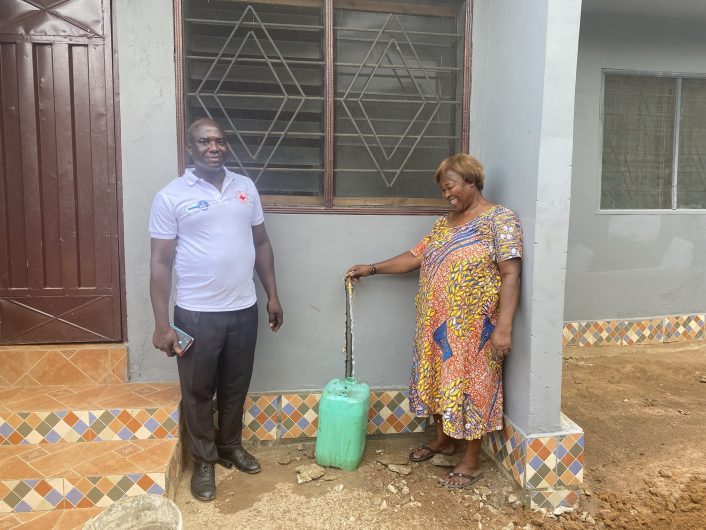Our WASH programming has traditionally focused on the needs of rural communities. However more than 58% of the world’s population currently lives in urban areas and this number is growing. Globally, urban areas have higher water and sanitation coverage than rural areas, but significant disparities exist within cities.
Deep and profound inequalities within urban areas mean that the most at risk urban communities are being left behind, often with little or no access to water and sanitation services. Furthermore, due to climate change, urban areas are increasingly vulnerable to floods, droughts and heatwaves.
WASH in urban settings is a key strategic priority of the IFRC and National Societies. Much more has to be done in order to address the fast-increasing demand and need for WASH services for urban communities, before, during and after emergencies.
Sustainable management of water resources in urban areas requires solid investment and collaboration from government, the public sector and communities. This integrated approach can offer strong resilience, particularly in the face of climatic events and protracted crisis.
As well as having an impact on public health, improving and managing access to water, sanitation and good hygiene practices aims to strengthen preparedness for future shocks and improve living conditions, particularly for vulnerable communities living in urban areas.
Supporting National Societies in implementing activities and projects in Urban WASH, focusing on both emergency and development.
Empowering local public water and sanitation service providers.
We help public service providers to deliver affordable and high-quality services at scale by making our expertise and resources available. We collaborate to increase safe water access, safe sanitation services and to improve disaster preparedness, while continually focusing on the inclusion of the most vulnerable.
Developing, sharing and coordinating resources and lessons learned through the Urban WASH Technical Working Group.
Partnering with academic institutions and other organizations leading in Urban WASH.
Developing trainings and resource material for Red Cross practitioners.
Guide (local) governments in the development of regulations and operator licensing systems that ensure a good quality of affordable services for communities and people living in informal settlements.
 In Ghana, a big part of the urban population lives in congested, sub-standard structures. These people often do not have a connection to the public water distribution system at their house. Instead they are dependent on commercial water vendors and have to pay more for water compared to those who are connected to the public system. The lack of access to clean water also poses serious health risks, protection concerns, and undermines human dignity.
In Ghana, a big part of the urban population lives in congested, sub-standard structures. These people often do not have a connection to the public water distribution system at their house. Instead they are dependent on commercial water vendors and have to pay more for water compared to those who are connected to the public system. The lack of access to clean water also poses serious health risks, protection concerns, and undermines human dignity.
A unique partnership between Ghana Red Cross, Ghana Water Company Limited and the Netherlands Red Cross aims to tackle these issues. Since 2021, the partnership has been working to deliver more effective water supply to urban poor through a unique partnership, combining the technical knowledge of utilities and the power of community engagement from Ghana Red Cross to drive behavior change and transform less advantaged people into responsible water customers. This includes targeted behavioral change campaigns based on community motivations and perspectives, and the use of a voucher subsidy system for the most vulnerable families.
Find out more in the case study or listen to our podcast >>
Sign up to receive updates from the IFRC WASH unit here, or contact us for more information